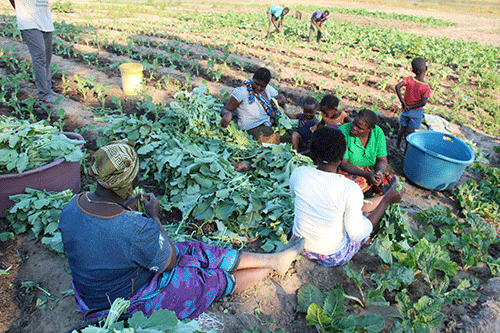In an effort to encourage consumers and retailers to consume what is locally available, the government through the Namibia Agronomic Board released a statement last month that borders will be closed for the month of January 2022 for many horticulture products as there is enough locally.
CEO of NAB Fidelis Mwazi said the close border and pro rata imports that are implemented for the special controlled products are in line with the Agronomic Industry Act and the Namibian Horticulture Market Share Promotion Scheme rules and regulations.
The horticulture industry in Namibia is growing steadily, but is faced with many challenges such as drought, high input cost, pests and diseases. Namibia remains a net importer of mainly fresh fruits, while the production of most vegetables has been on the increase for the past years after the introduction of the Market Share Promotion Scheme, which requires traders to buy a certain minimum, currently 47% of the value of locally produced products from local producers, as a condition for importation. NAB is geared towards providing services aimed at facilitating production, marketing, processing and storage of horticultural products. Some of the service provisions include the issuance of permits, implementation of the market share scheme, and the provision of information services.
Statistics from NAB for the 2018/19 shows that total production marketed locally stands at 31 501, production exported is 50 145, while the imports are 57 581.
Agriculture ministry spokesperson Jona Musheko assured local producers the ministry is committed to making sure the country thrives through local production of horticulture, in efforts to fight food security in the country. “Recently, we noticed a number of closed borders when it comes to horticulture produce because the country had internal producers that were doing well on most of the products and as a result, we had to close the borders to make sure what is produced locally is consumed before we import anything,” he explained.
Musheko noted it is a good thing that many people are now engaging in horticulture activities: “Government is doing a lot to make sure these producers are well catered for through policies to make sure their products find a market. The ministry has a programme aimed at boosting horticulture production by subsidising their inputs, be it seeds or fertilisers and others to make sure they have the capacity they need to continue producing.”


